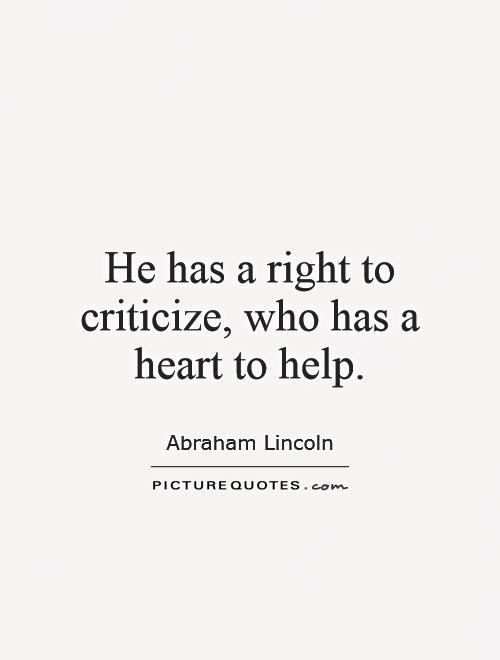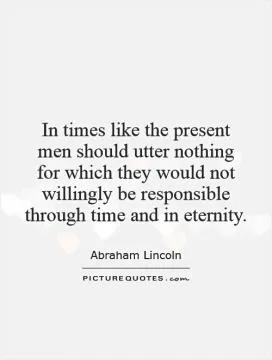He has a right to criticize, who has a heart to help

He has a right to criticize, who has a heart to help
Abraham Lincoln, the 16th President of the United States, is often remembered for his leadership during one of the most tumultuous times in American history - the Civil War. He is revered for his steadfast commitment to preserving the Union and abolishing slavery, but he was also known for his ability to listen to criticism and learn from it.The quote "He has a right to criticize, who has a heart to help" is particularly relevant when discussing Lincoln's leadership style. Throughout his presidency, Lincoln faced criticism from all sides - from political opponents, the press, and even members of his own party. However, he never shied away from criticism, but instead welcomed it as an opportunity to learn and grow.
Lincoln understood that criticism, when offered constructively, could help him see things from a different perspective and make better decisions. He surrounded himself with a diverse group of advisors who were not afraid to challenge his ideas and offer alternative viewpoints. This willingness to listen and learn from criticism ultimately made him a more effective leader.
One of the most famous examples of Lincoln's ability to listen to criticism and learn from it was his decision to issue the Emancipation Proclamation. Initially, Lincoln was hesitant to take such a bold step, fearing that it would alienate border states and jeopardize the Union cause. However, after receiving criticism from abolitionists and members of his own party, Lincoln reconsidered his position and ultimately issued the proclamation, declaring that all slaves in Confederate-held territory were to be set free.
Lincoln's willingness to listen to criticism and act on it not only helped to end slavery in the United States but also solidified his legacy as one of the greatest presidents in American history. His example serves as a reminder that true leadership requires the humility to accept criticism and the courage to act on it for the greater good.












 Friendship Quotes
Friendship Quotes Love Quotes
Love Quotes Life Quotes
Life Quotes Funny Quotes
Funny Quotes Motivational Quotes
Motivational Quotes Inspirational Quotes
Inspirational Quotes